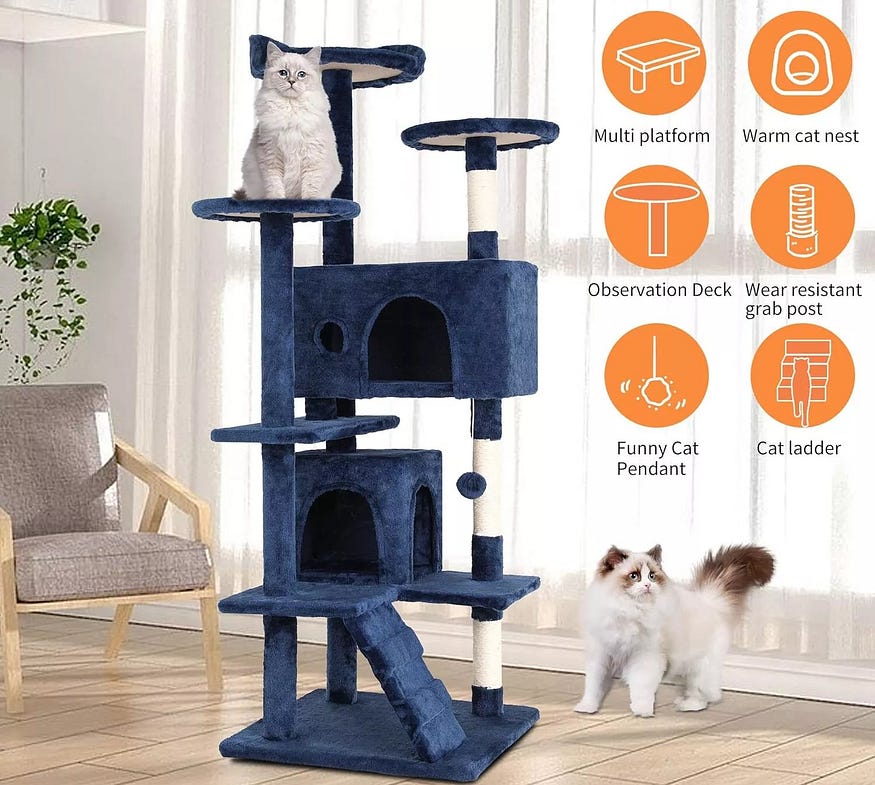Discover the fascinating ways cats may detect their owners’ illnesses. Explore scientific insights and real-life stories on feline sensitivity to human health

This post can be read in Tocsin Magazine, and all Medium members can read the full article here.
Written by Xena
Introduction
As a devoted cat owner, I can personally vouch for the benefits of “cat therapy” on my mental well-being — my felines are my natural healers. Numerous studies have highlighted the positive impact that cats can have on both mental and physical health. However, a lingering question remains: can cats really detect illness, and if so, how do they do it?
Can Cats Really Detect Illness?
In recent years, stories have emerged — especially from the United States — suggesting that pets, particularly cats, may sense when their owners are falling ill.
Although solid scientific proof is still pending, many intriguing examples suggest that our feline friends might be able to pick up subtle signals of disease before any symptoms appear.
Extraordinary Sense of Smell
Cats are renowned for their incredible sense of smell, which allows them to notice even the subtlest changes in their environment. Many researchers believe that this keen sense enables cats to detect shifts in body chemistry that occur during various health issues.
For example, certain diseases like cancer are known to alter body odors, and it appears that cats can sense these changes well before visible symptoms set in. Owners have reported that their cats start sniffing persistently or settle near specific areas of their body as if trying to signal that something isn’t right.
Anecdotes and Real-Life Experiences
Around the globe — and notably in the United States — many pet owners have shared stories of their cats responding to early signs of illness. Several accounts describe how a cat began to behave unusually just weeks before its owner was diagnosed with a serious condition, such as diabetes or even a tumor.
While these stories don’t offer conclusive evidence, they open up a fascinating possibility: the natural instincts and sensory abilities of cats might aid in early diagnosis. Some experts even suggest that future research could lead to technology harnessing these feline traits as a supplementary tool in medical diagnostics. Until then, these accounts encourage us to closely observe our pets’ behavior.
A Personal Example
While most studies have yet to confirm a direct link between feline behavior and disease diagnosis, a few research papers indicate that a cat’s actions may not be coincidental.
I experienced this firsthand a few years ago when my husband was diagnosed with acute kidney failure. Doctors were initially puzzled about the cause until it turned out that it was most likely caused by mouse fever.
Before his illness, our oldest cat, Tea, was constantly by his side. Wherever he sat or lay down, Tea would settle on his lap or sleep on his stomach. Even after his hospital stay, she remained inseparable for months.
It was only then that we realized her presence had a therapeutic effect, almost as if she were “healing” him. Had we recognized this warning sooner, we might have prevented the condition from worsening.
Practical Advice for Pet Owners
If you notice unusual behavior in your cat, consider it a prompt to pay attention to your own health. Here are some tips:
- Observe Your Cat: Watch for persistent sniffing or a consistent preference for resting near a particular part of your body.
- Document Any Changes: Keep a record of any noticeable shifts in your cat’s mood or activity, and share these observations with your doctor.
- Stay Proactive: Regular medical check-ups are crucial for early detection of serious illnesses; your pet’s behavior might provide that extra hint to get checked out sooner.
Conclusion
Cats may well encourage us to pay closer attention to our health, even if their ability to diagnose illness isn’t yet scientifically proven. The many stories of cats picking up on early signs of disease invite us to wonder about the depth of their intuition and sensitivity.
While they are not a replacement for professional medical advice, our furry companions could serve as an early warning system, alerting us to subtle changes before they become critical.
As medical science advances, future research may well confirm that our four-legged friends have a unique role to play in early disease detection. Until then, cats remain a compelling example of how nature can sometimes reveal what modern science has yet to fully understand.
“We have to take care of our pets as for ourselves.”
In this article, you will find some affiliate links. If you click on one of those links and buy something, we will get a small fee, but that fee is not charged to you, instead, it is paid to us by the product owner or reseller. This way, you can buy excellent products researched and reviewed by us without any additional cost to you!
Your shopping with our help can be so much fun and a positive adventure because our motto is:
Save your nerves, and save your money,
shopping with us is so easy and funny!
If you want to support my work, buy me a coffee for $1 by clicking the link below. This is a small amount for you, but this means a lot to me!
Greetings, and until my next article!
Xena












0 comments:
Post a Comment